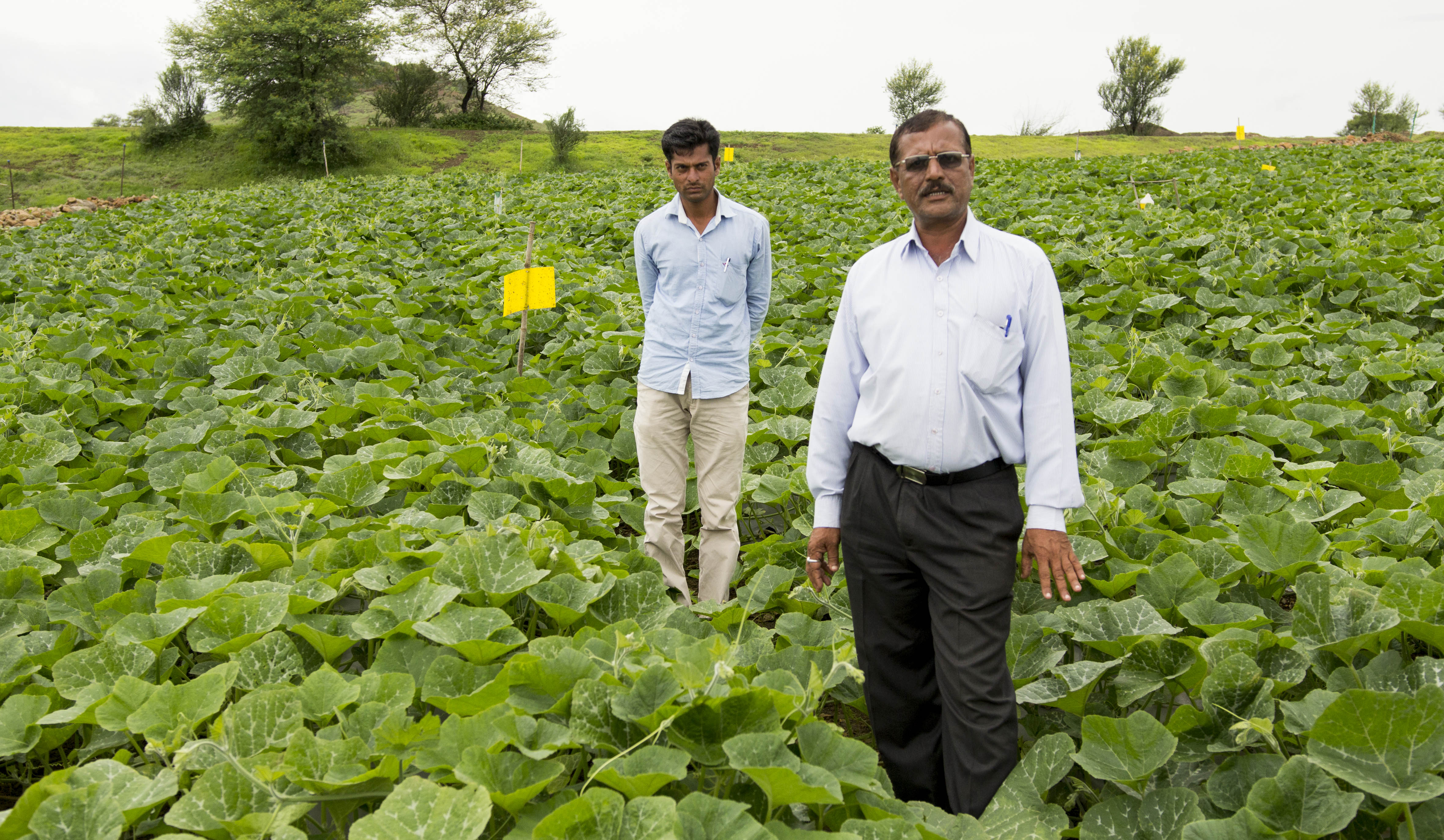
Makrand Dani
Makrand Dani
Age: 49 years
Farming since: 1992
Organic Farming since: 1996
Education: BSc in Agriculture
In 1992, at the young age of 23, Makrand Dani, hailing from Panchincholi, a village in Nilanga Taluka, Latur District of Maharashtra, returned to his village after completing his graduation in agriculture from a college in Kolhapur. The only son, like his father he took up a job in a nearby sugarcane factory while also farming their 10 acre farm. As was the prevalent practice then, plenty of chemicals, pesticides and fertilisers for maintaining the soil and combating pests and diseases were used.
Having studied agricultural science, Makrand was quick to note that the benefits of using chemicals, be they pesticides or fertilisers, were temporary, as diseases recurred as soon as the effect of the chemicals wore off. Additionally, the constant spraying of chemicals depleted the soil, which meant that he had to add more fertilisers. Worried about the increase in cultivation costs that reduced his profits, he knew he had to look for other solutions.
In 1996, Makrand decided to try out organic farming on a small part of his land, using dried plants, cow dung and leaves for creating manure. One significant benefit of this switch was the improvement in the health of the crops which enabled them to fight diseases on their own without the assistance of chemicals. This success convinced Makrand that he needed to do some serious thinking and planning to convert to Organic Farming. The first step was to stop using chemicals, but that would not be enough as residual chemicals that had seeped into the soil had to be allowed to dissipate. However, he knew that this step was needed for a better future.
When Makrand stopped using chemicals, the physical work for him increased, from making organic manure to trapping insects using sticky paper. Even so, on the positive side, because he was not buying chemicals, he saved money, with which he slowly started buying more land. Today Makrand owns 150 acres of land, which he says was only possible because of the shift to organic farming.
Explaining why he became part of 21 Organic, Makrand says, “If one has to grow, one cannot do everything alone. By joining 21 Organic, I get to be part of a network, sharing ideas, discussing problems and meeting people to whom one would never otherwise have access.” He adds, “I am not an expert in marketing, so the platform through 21 Organic is very helpful.”
Advice to farmers
Says Makrand Dani “If you are using chemicals, begin with one trial plot for organic farming. You can yourself calculate the cost vs. yield benefits. While using chemicals, you have to monitor the plants, and keep spraying more regularly – but when you go organic, the entire ecosystem works for you.”
Advice to vegetable consumers
“Chemically treated plants often look shiny and colourful. But they have chemicals in them and have very less keeping quality. They get spoilt very soon. The organically grown vegetables and fruits have better taste and greater keeping quality. Don’t buy seeing the bright colours.”
Today Makrand’s organic farm grows 25 varieties of vegetables, including tomato, brinjal, beans, leafy vegetables and carrots, along with fruits such as custard apple, pomegranate, drumstick and papaya.
Hummus
12.06.2019
This Mediterranean recipe is easy to prepare and a great source of Plant-Based Protein.
Chawli (Cow pea)
23.05.2019
Chawli is often referred to as “poor man’s meat” due to the high levels of protein found in the seeds and the leaves.
Kaanda Bhendi (Onion Okra ) Stir Fry
17.05.2019
Serve hot with Jowar Bhakri (Indian bread made from Sorghum) or Varan – Bhaat and Toop.